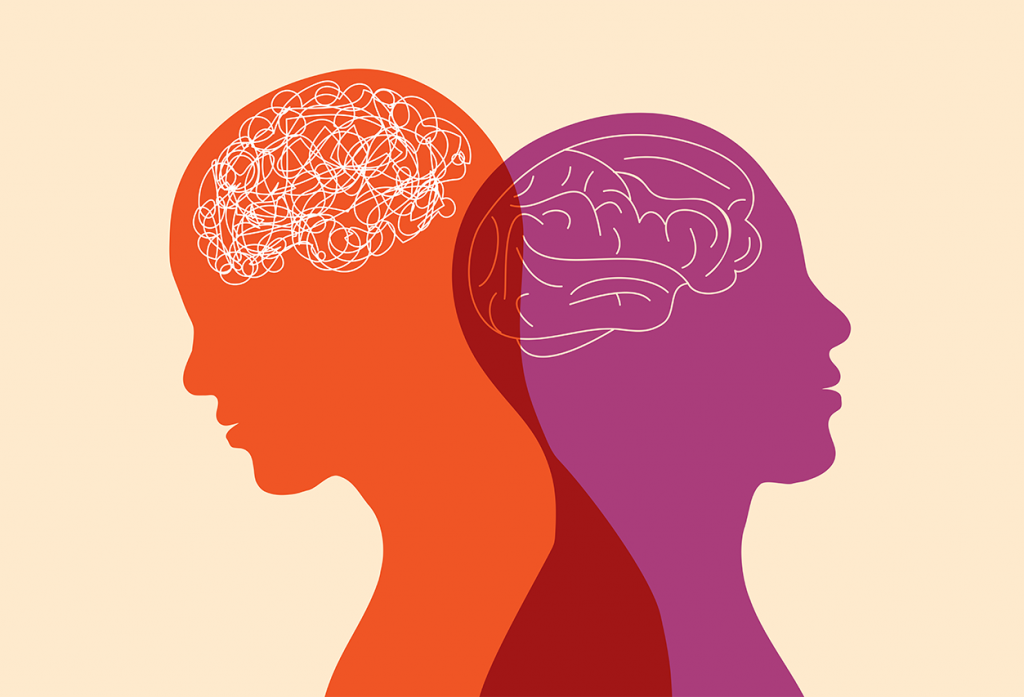What’s the difference between brain injury and mental illness?

Brain injury is a known risk factor for developing a mental illness, yet the two are not the same. The effects of brain injury and mental illness can often look similar, so misdiagnosis and other complications are possible.
Understanding the difference between the two helps break stigmas and pave the way for better support for both mental illness and brain injury.
What is mental illness?
A mental illness affects someone’s mood, thoughts and behaviour as it impacts the way they perceive the world around them. Unlike brain injury, it affects these things not because of a physical trauma or physical change in the brain but because of a range of psychological pressures like stress and trauma. Mental illness can disrupt work, relationships, and someone’s ability to manage everyday tasks. About 1 in every 5 Australians will experience a mental illness each year.
Mental illnesses include:
- Mood disorders (such as depression or bipolar disorder)
- Anxiety disorders
- Personality disorders
- Psychotic disorders (such as schizophrenia)
- Eating disorders
- Trauma-related disorders (such as post-traumatic stress disorder)
- Substance abuse disorders.
What is brain injury?
A brain injury is any condition that impairs the brain and its functions. This encompasses traumatic, acquired and degenerative brain injuries. A brain injury generally refers to injuries sustained after birth. These include incidents that result in an interruption of blood or oxygen supply to the brain or traumatic external force to the head.
Causes of brain injury and brain disorders include:
- Traumatic injury
- Concussion
- Stroke
- Degenerative conditions
- Hypoxia/Anoxia (lack of oxygen)
- Brain tumours
- Infection or disease
- Foetal Alcohol Spectrum Disorder (FASD)
- Assault
- Domestic violence.
How the two conditions may overlap
A mental illness may affect skills in memory, attention and planning – areas also commonly impacted by brain injury. A brain injury can cause changes to how someone thinks, reacts, works, and relates to others around them. These factors create a difficult environment to manage stress, emotions, and relationships – all key risk factors to experience a mental illness. Those living with brain injury are at greater risk of depression and suicidal thoughts or actions.
Where to go if you need help
- Lifeline Australia – 13 11 14
- Beyond Blue – 1300 22 4636
- Sane Australia – 1800 18 7263
Sources:
• Synapse Australia. (2021). Acquired brain injury, the facts: a practical guide to understanding and responding to acquired brain injury and challenging behaviours (6th ed.). Brisbane, Qld: Synapse Australia.
• Health Direct (Mental illness).